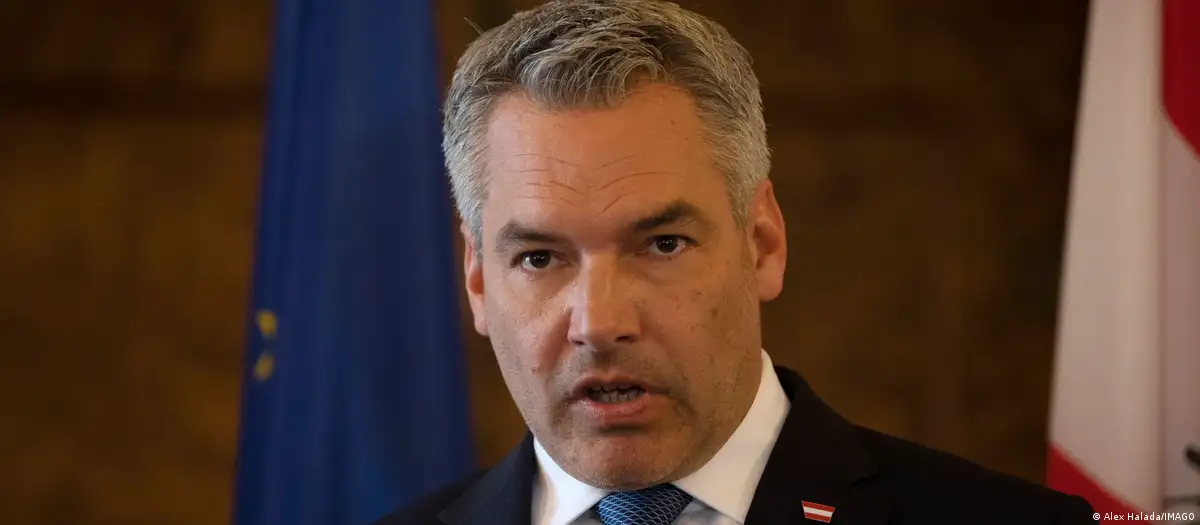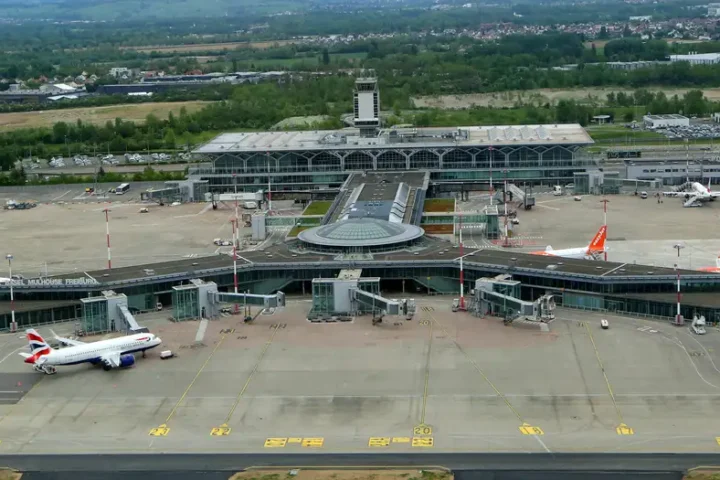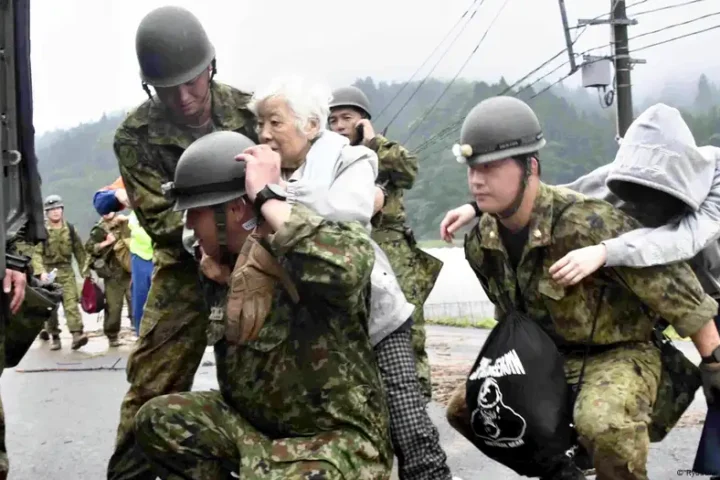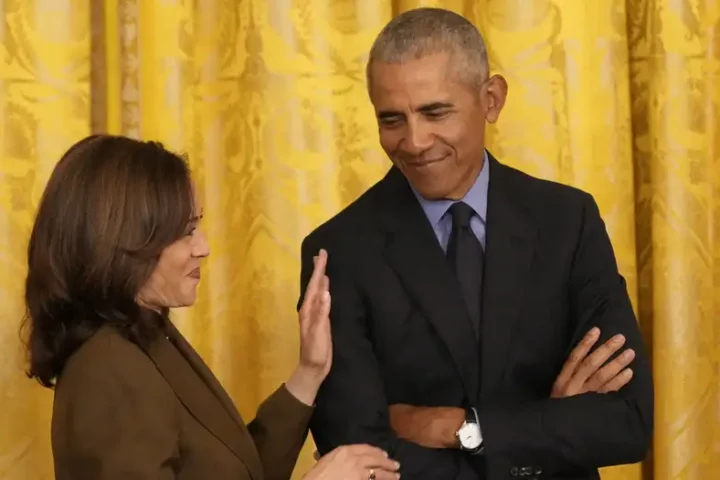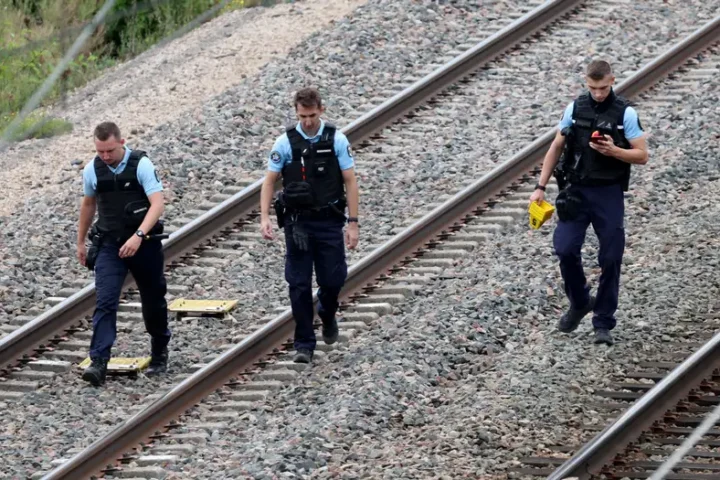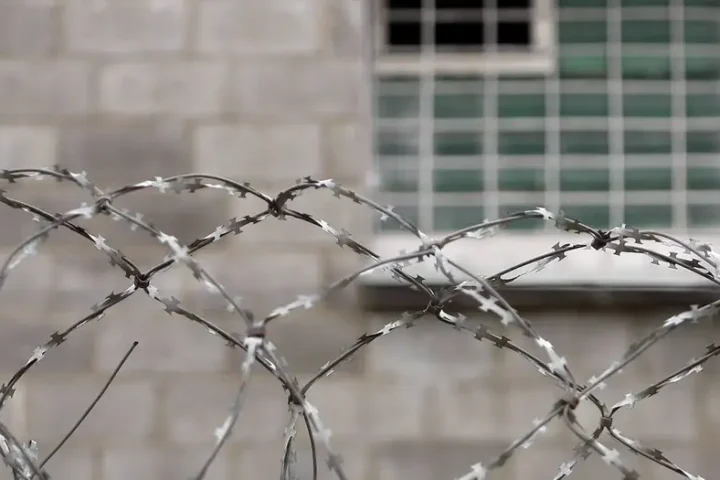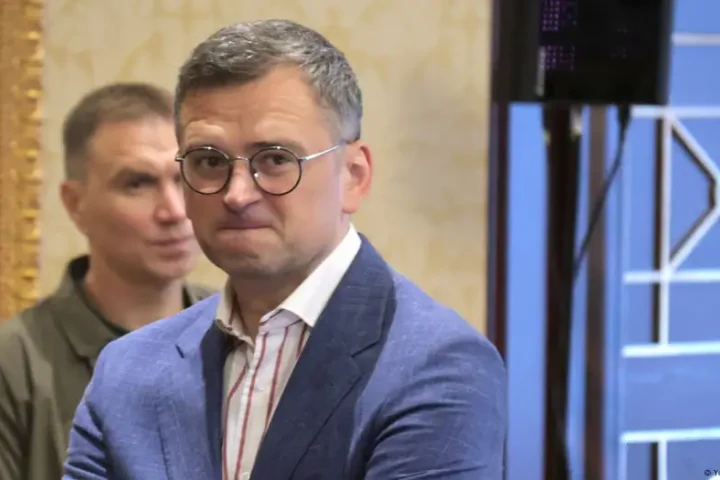Austrian Chancellor Karl Nehammer said it was time to evaluate and clarify the security situation in the country following the arrest of a former Austrian intelligence officer on suspicion of spying for Russia.
Austrian Chancellor Karl Nehammer on Monday said he would convene the National Security Council to discuss security to thwart what he said was Russian infiltration in the country.
Nehammer said in a statement that a thorough “evaluation and clarification” of the security situation was needed.
His statement comes after the recent arrest of a former Austrian intelligence officer for allegedly spying for Russia.
The National Security Council — consisting of government ministers and members of all political parties and a key advisory panel of security and defense matters — is scheduled to meet April 9.
“We must prevent Russian spy networks from threatening our country by infiltrating or exploiting political parties or networks,” Nehammer said in the statement, referring to the far-right movement “FPO”, which has past links to Moscow.
What is known about the former Austrian intelligence officer
The man who worked for a now-defunct intelligence agency in Austria, was arrested in late March on suspicion of spying for Russia.
The Vienna Criminal Court on Monday approved a 14-day extension for holding the Austrian national in custody on the charges against him.
The Vienna public prosecutor’s office declined to provide details about the espionage allegations, but said that they relate to “abuse of office” and were “detrimental to Austria.”
According to a report in Austrian daily Der Standard, the man is suspected of having handed over potentially sensitive data from the mobile phones of three former high-ranking Austrian Interior Ministry officials to Russian authorities in 2022.
Austria, a European Union member that has a policy of military neutrality and hosts several UN agencies in its capital of Vienna, also ordered two diplomats from the Russian Embassy in Vienna to leave the country early March.
An Austrian official said the case was related to spying activities.
Editor’s note: Deutsche Welle follows the German press code, which stresses the importance of protecting the privacy of suspected criminals or victims and obliges us to refrain from revealing full names in such cases.
Source: Dw
